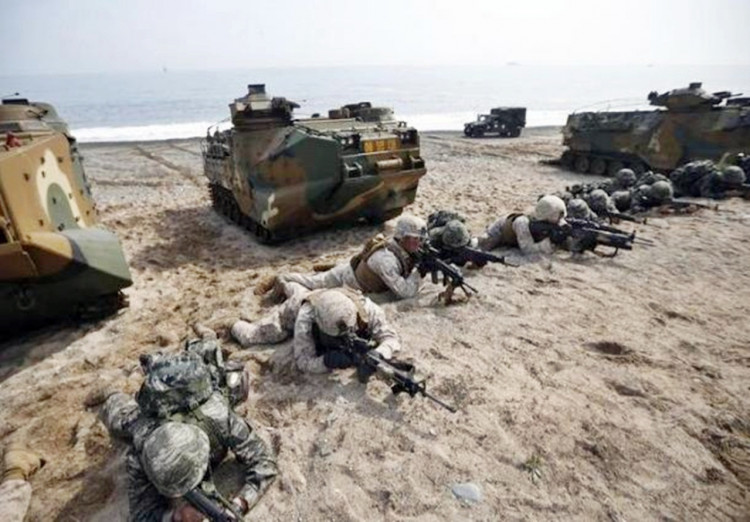The U.S. Marine Corps, which will be the first American combat unit to fight in any ground conflict in Asia, is reorganizing its forces in the Asia-Pacific as it prepares for a possible war against China.
Marine Corps Commandant Gen. David Berger said the Marines were reexamining deployments - which still center on supporting South Korea against an invasion by the North. The new political realities in Asia triggered by China's militarism have changed calculations on the ground, however. The Pentagon says China is now America's main strategic competitor.
Gen. Berger said tens of thousands of Marines are based in California and Hawaii and Japan for rapid deployment to the Korean Peninsula in the event of a North Korean invasion. He said this was put in place at the end of World War II.
But "it's not a great posture for the joint force," Gen. Berger said regarding a joint operations strategy underpinning the future. This posture will certainly be irrelevant 10 years from now. "We need to relook at it for the Marines," he said.
Gen. Berger said Marines in Asia-Pacific "have to spread out" - or establish new bases - to ensure they can accomplish any mission against China.
The U.S. military, especially the U.S. Navy, is bolstering its presence and infrastructure on Guam. The Navy recently requested $1.7 billion in new military spending - specifically for Guam - to deter China. U.S. Defense Secretary Mark Esper wants to "increase military investment in the (Indo-Pacific) region."
The U.S. recently received a boost when the Republic of Palau, situated between Guam and the Philippines, consented to Americans building military bases there. The U.S., however, still regards the Philippines as key to their new posture.
Earlier this month, Palauan president Tommy Remengesau Jr. offered to host new U.S. military facilities, including ports and air bases.
"Palau's request to the U.S. military remains simple - build joint-use facilities, then come and use them regularly," Remengesau said.
In the meantime, however, the concentration for the Marines is on Guam - the front line of U.S. opposition to China.
"We have to factor in Guam," Gen. Berger said. "We have to have a dispersed distributed force laydown in the Pacific that allows us to work with all the allies and partners in the region - and deter countries, like [China's] People's Liberation Army Navy, from asserting themselves in a manner that that tries to rewrite all of the global...norms that have been well established for 50, 60, 70 years."






